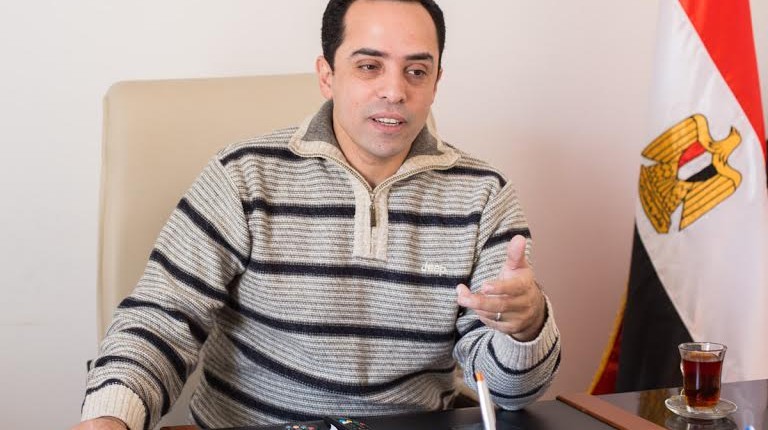
The first time female genital mutilation was discussed openly in Egypt was in 1994. This was during the UN-coordinated International Conference on Population and Development in Cairo. The two week conference brought together world leaders, government officials, rights campaigners, and representatives of civil society and the media from 179 countries to discuss developmental challenges, linking these with human rights issues, especially women’s issues.
It was the first time that I had ever heard terms like women’s empowerment, reproductive health and sustainable development. It was also the first time I had heard about FGM. Nor did I know before then that it was practically universal in Egypt.
Ninety six per cent of Egyptian women aged 15 to 49 were found to have been circumcised , according to a 2005 UNICEF report . FGM was a taboo subject and it was at the ICPD that the silence on the practice was broken for the first time. A CNN reporter had travelled to Upper Egypt and filmed a young girl being cut. CNN aired the story a day before the opening of the conference and it sent shockwaves across Egypt and the rest of the world.
Young girls across the country were being subjected to the brutal practice, which left them scarred emotionally and physically for the rest of their lives. The CNN story embarrassed the Egyptian government which until then had turned a blind eye to the practice. The CNN reporter who broke the story was accused of “tarnishing the image of the country” and barred from reporting in Egypt.
The ICPD was ground-breaking , bringing such issues as reproductive health, domestic violence and FGM under scrutiny for the first time. Egypt was the first Arab country to ratify the Convention on Eliminating all forms of Discrimination against Women in 1981 (albeit with reservations), and the government had to show that it was serious about pledges it made to protect and promote women’s rights – including curbing violence against women.
It took several more years however, before the government – under immense pressure from the international community – reluctantly began taking small steps to eliminate the practice of FGM. In 2003, the National Council for Childhood and Motherhood – a government body that had been established in 1988 to plan, monitor and coordinate efforts to promote the wellbeing of children – launched the Free Villages project.
The initiative which was supported by UN agencies, the European Commission and donors, aimed at changing families’ attitudes towards FGM by raising awareness about the harmful effects of the brutal practice. Volunteers and community leaders went from door to door urging village families to abandon the practice. By the end of the first phase of the project (after a two year period ) thousands of families in no fewer than 60 villages had signed public declarations saying “No to FGM.” Two years later, the number of villages declaring themselves “FGM-free” had doubled to 120.
I remember going to Benban, a tiny hamlet 30km from Aswan, to cover the very first village declaration to stop FGM. I was surprised to find that the mood was festive as mothers and daughters – dressed in their best attire – flocked to the large tent where the ceremony was taking place. They clapped and cheered as religious clerics, village doctors and community leaders addressed the crowd, speaking out against FGM and advising mothers not to circumcise their girls.
Some of the mothers who had earlier attended awareness sessions or had heard the anti-FGM public service messages on TV also shared their knowledge with the audience. What surprised me most was that the women and girls were here, openly talking about the practice that not so long ago, had been a hush hush matter.
I still remember clearly the faces of the teenage girls – bright and innocent. They formed a circle round me and recounted their stories. Many of them had been traumatised by the experience and told me it would continue to haunt them for the rest of their lives. Some told me that they felt “relieved and empowered” knowing that they could now escape the terrible ordeal inflicted on some of their older friends ”There’s nothing in the Qur’an that says we ought to be circumcised,” a 13 year old girl shyly whispered.
“I was circumcised at the age of eleven. The experience continues to haunt me. I bled so much I almost died,” recalled a 15 year-old village girl. Then, smiling broadly, she added, “But if I have daughters, I shall never put them through what I’ve been through.”
Her companion, a dark girl who was veiled winced as if in pain as she remembered her own FGM experience.” Three women held me down as the midwife performed the surgery. They were all our neighbours. I still find it hard to forgive them,” she said.
However, a father of three girls told me that despite what he had heard at the ceremony that day, he remained unconvinced. “Of course I shall have my daughters circumcised. These are our habits and traditions.”
FGM is a centuries old practise in Egypt and is believed to protect a girl’s chastity and thus, the family honour. Most Christian families have now abandoned the practice after church clerics advised families against it. Muslim clerics however have not categorically rejected FGM and often refer to a hadith by Prophet Muhammad. Many of them are unaware that the practice is neither popular nor common in Saudi Arabia, Jordan and Yemen which are also majority Muslim countries.
When a young man told me that he would never marry a girl who had not been circumcised I realized how crucial it was to change men’s attitudes, because it is precisely that kind of attitude that hinders progress in the fight against FGM.
I also knew then that the battle was just beginning and that Egypt has a long way to go before all Egyptians are fully convinced that they must turn their backs on such habits and practices.
In 2007, a law was passed criminalising FGM in Egypt. But that only happened after two young village girls, Karima and Bedour, died of FGM related injuries. After the tragic deaths, the battle against FGM gained momentum and everyday new converts joined the cause. I attended several village declarations in the years that followed and was exhilarated at the progress being made. By 2008, the once-taboo issue was being discussed in classrooms and was frequently debated on TV.
In recent months, ultra conservative Salafis have called for the de-criminalisation of FGM. They call it Suzanne Mubarak’s law and say the former first lady imposed western values on society. The Salafis also demand lowering the marriage age for girls to nine or 10.
When I asked Dr Sabbah El-Sakkary, a prominent member of the Muslim Brotherhood’s Freedom and Justice Party, about her views on FGM, she said “only a doctor can decide whether or not a girl is in need of the surgery.”
I was terribly disappointed at her answer. After all, doctors in Upper Egypt perform circumcision for 100 LE per surgery. In times of economic hardship, they may be tempted to do several surgeries a day. In the villages, midwives earn a livelihood performing FGM. One midwife in Luxor told me in 2007 she does no less than three or four a day.
In the absence of legislation to curb the practice, Egypt’s girls will continue to suffer humiliation and physical pain. It is a huge disappointment to hear the calls of the Salafis to bring back FGM. I had hoped that Egypt would build on the small progress made in the last nine years. If the Salafi calls are heeded, we would instead be making a backward slide to the old days when the violent practice was used as a means to break girls into submission.


